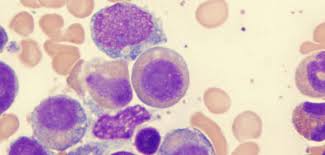A recent study conducted by researchers from the University of Miami Miller School of Medicine’s Sylvester Comprehensive Cancer Center, in collaboration with other organizations, has shed light on the underlying mechanisms of gene mutations commonly found in patients with myelodysplastic syndromes (MDS) and other myeloid neoplasms. The research findings, which are set to be presented at the American Society of Hematology’s annual meeting in Santa Diego, could pave the way for the development of more effective drug combinations and targeted therapies specifically designed for MDS patients carrying these mutations.
It is estimated that approximately half of MDS patients possess genetic alterations, or somatic mutations, in spliceosome genes, with SF3B1 being the most prevalent mutation observed. However, despite the frequency of these mutations, there is currently no successful therapy available that specifically targets this pathway.
Previous evidence from a phase 2 clinical trial of selinexor, an inhibitor of Exportin-1 (XPO1) used in the treatment of relapsed or refractory MDS, demonstrated increased efficacy in patients with SF3B1-mutated MDS. Exportin-1 is a nuclear export receptor responsible for transporting over 200 proteins, as well as several small nuclear RNAs and select messenger RNAs.
Based on these observations, researchers at Sylvester Comprehensive Cancer Center and their collaborators hypothesized two key ideas. Firstly, they suggested that inhibiting XPO1 might selectively impact SF3B1-mutant cells by disrupting splicing. Secondly, they proposed that high-risk MDS patients with this mutation may respond better to targeted drug combinations that are carefully controlled in terms of dosage and utilize next-generation XPO1 inhibitors.
This groundbreaking study represents the first attempt to examine the effects of XPO1 inhibition on RNA export in order to gain a better understanding of the underlying mechanisms involved in the most prevalent mutation seen in MDS patients, according to Sana Chaudhry, a researcher at Sylvester Comprehensive Cancer Center who is also the lead presenter at the ASH conference.
Justin Taylor, M.D., the senior author of the study and a member of Sylvester’s Translational and Clinical Oncology Program, stated that the findings of the study could contribute to the development of synergistic therapeutic combinations for the more effective treatment of SF3B1-mutant MDS.
Furthermore, Dr. Taylor highlighted recent data from human studies indicating that venetoclax has the potential to overcome the poor prognosis often associated with acute myeloid leukemia patients with mutations. Consequently, combining eltanexor with venetoclax could potentially offer an effective SF3B1-specific therapy for MDS patients, he concluded.
In conclusion, this groundbreaking study provides crucial insights into the gene mutations commonly observed in MDS and other myeloid neoplasms. By further elucidating the underlying mechanisms of these mutations, it is hoped that this research will contribute to the development of more effective drug combinations and targeted therapies, ultimately improving the outcomes for MDS patients with SF3B1 mutations. The potential synergy between eltanexor and venetoclax also represents an exciting avenue for future exploration in the realm of SF3B1-specific therapies.



